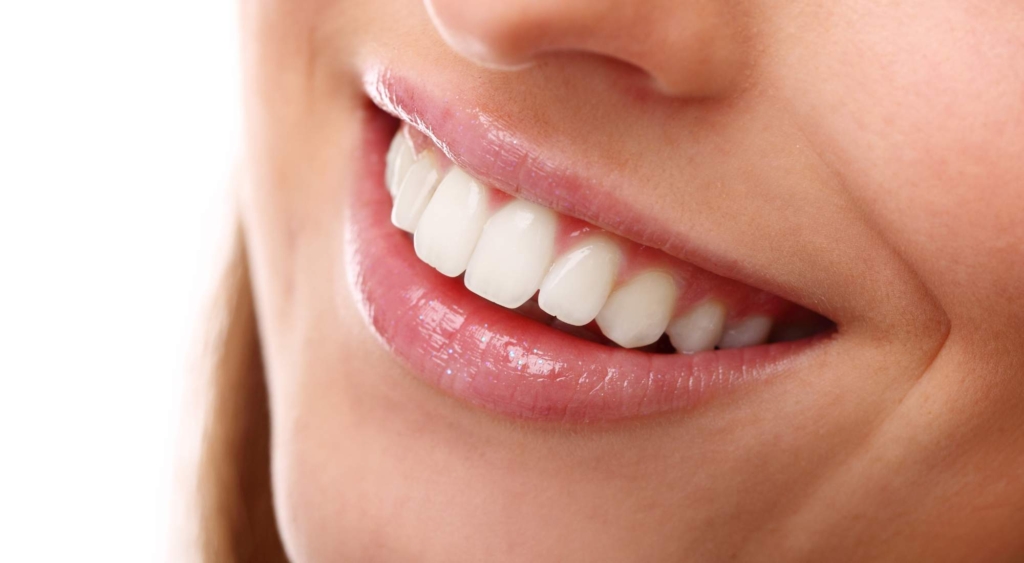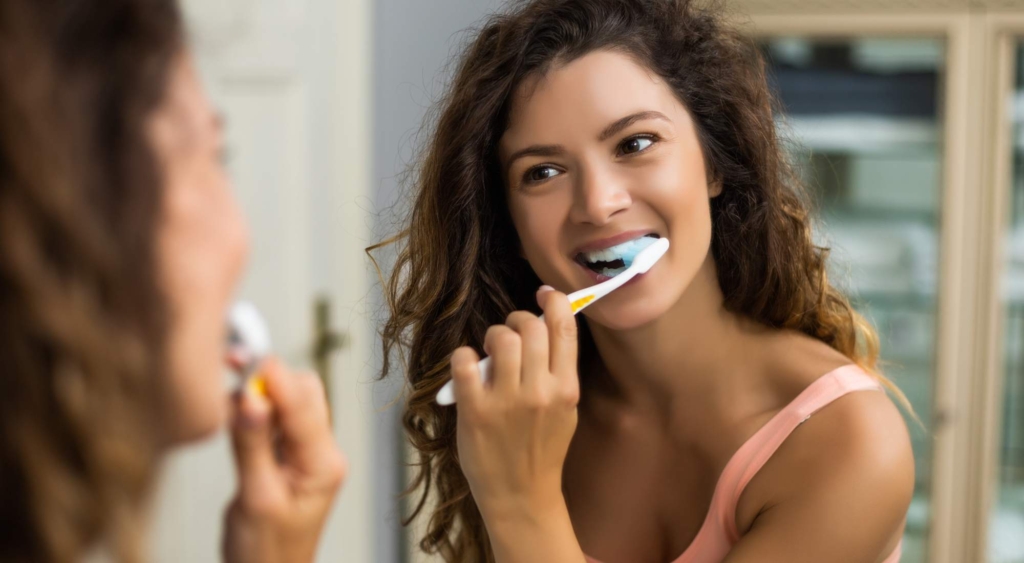Does Charcoal Toothpaste Really Work To Clean and Whiten Teeth?
You’ve seen it advertised, and acquaintances swear by it — charcoal toothpaste.
It sounds like a great idea, but once you set eyes on that black sludge, you start to second-guess popular wisdom. Is this some kind of cruel joke? It’s black. Can you really put that on your teeth and expect them to get whiter?
It’s worth asking. The last thing you want is for your teeth to suffer from a trusted but misguided trend.
Mint Dental Works discusses how charcoal toothpaste works and whether it is safe and worthwhile for those seeking to brighten their smiles. We’ll also share some tips for keeping your teeth pearly white (or at least ivory).
Table of Contents
- What Is Charcoal Toothpaste?
- How Does Charcoal Toothpaste Work?
- Does Charcoal Toothpaste Work To Whiten Teeth?
- Pros and Cons of Using Charcoal Toothpaste
- Is Charcoal Toothpaste Safe?
- Does Charcoal Toothpaste Work Better Than Other Whitening Methods?
- 6 Tips for Maintaining Your Bright Smile
- Brighten Your Smile With Teeth Whitening at Mint Dental Works
What Is Charcoal Toothpaste?
The main ingredient of charcoal toothpaste is activated charcoal, a fine black powder made from oxidizing wood, coconut shells, and other natural substances under extreme heat.
Used in medicine to absorb toxins, it has been incorporated in dental care products as well, and is loudly touted for its ability to remove stains from teeth.
How Does Charcoal Toothpaste Work?
Activated charcoal has three qualities that have convinced many of its tooth-whitening effectiveness:
- Abrasiveness: Because activated charcoal is mildly abrasive, like baking soda, it has considerable scrubbing power. Thus, it can scrub stubborn stains from the enamel.
- Negative charge: The surface of charcoal is negatively charged, so it attracts positively charged particles, such as certain toxins, to itself. Because it is also sticky, those particles stick to it instead of the teeth.
- Absorbance: Charcoal is very absorbent, so the stains scrubbed off by abrasion are absorbed into it and are expectorated during brushing.
There is little scientific research confirming the suitability of charcoal toothpaste for long-term use, however. For the most reliable guidance about dental care, speak with the professionals at Mint Dental Works.
Does Charcoal Toothpaste Work To Whiten Teeth?
Theoretically, based on its properties, charcoal toothpaste should help to remove external stains because of its abrasive quality. Drinking a lot of coffee or red wine, using tobacco, or eating certain foods without brushing afterward, for instance, causes staining. But charcoal’s stain removal ability only seems to work on the surface. It does not improve discoloration located below the enamel, such as that caused by:
- Weakened enamel
- Trauma
- Fluoride overuse
- Certain medications
So if the stains on your teeth are more superficial, there’s a chance charcoal toothpaste would have a whitening effect, but there’s more to consider before deciding whether it’s a reliable product overall. A 2021 study on various charcoal-based toothpastes determined that 12 weeks of use produced no whitening effect at all.
Pros and Cons of Using Charcoal Toothpaste
The pros of using charcoal toothpaste are its potential to:
- Improve bad breath
- Remove superficial tooth stains
- Prevent staining if used occasionally
The cons, however, may be sufficient reasons for you to consider other whitening options:
- The quality that makes charcoal so effective at removing stains can eventually lead to more serious staining in the future. Too much abrasion can wear away your tooth enamel over time, making the dentin (located beneath the enamel) easier to stain and causing your teeth to lose their luster and look more yellow. It can also increase tooth sensitivity.
- It is not effective at removing stains at the level of the dentin.
- Charcoal may cause staining, either on dental restorations (fillings, crowns, bridges, veneers, etc.), which aren’t composed of the same material as your teeth, or in cracks or crevices in your teeth.
- Because little research has been done on the long-term safety and effectiveness of charcoal toothpaste, we still don’t know whether it should be recommended for long-term use. Many other treatments have, however, been studied conclusively and have proven to be safe and effective.
- Many charcoal toothpaste products do not have fluoride, one of the major ingredients found to be useful for the prevention of tooth decay. Without fluoride’s protection of your enamel, coupled with the abrasiveness of charcoal, using charcoal could actually accelerate cavity development. For these reasons, even if you decide in favor of charcoal toothpaste, it is not advisable for everyday use.
- Charcoal toothpaste is messier. Black or gray residue can build up in your sink if you aren’t careful about cleaning after each brushing.
Is Charcoal Toothpaste Safe?
More research is needed to determine beyond doubt that charcoal toothpaste is not harmful. For this reason, dentists do not recommend charcoal toothpaste. There is uncertainty about whether it may cause damage if used long-term. Besides being abrasive and weakening your enamel, it may be absorbed into your teeth, gums, and tonsils, presenting both cosmetic and physical damage.

Does Charcoal Toothpaste Work Better Than Other Whitening Methods?
Charcoal toothpaste’s whitening capability is doubtful, according to people’s experience and some scientific studies. Thankfully, it is not the only option. Other, more long-standing and evidence-based options are available, and these do not come with the sizable list of cons that attend charcoal toothpaste.
Other Tooth Whitening Alternatives
Whitening Toothpastes
All toothpastes have some abrasiveness, making them helpful in preventing and removing stains. Toothpaste specifically designated as whitening, however, contains polishing or chemical agents, such as hydrated silica, baking soda, hydrogen peroxide, and carbamide peroxide.
Although only able to make teeth one to two shades brighter, whitening toothpastes are easily accessible and inexpensive.
Whitening Strips
Whitening strips have a thin layer of peroxide gel. They are applied directly to the teeth for 30 minutes once or twice a day for about two weeks to achieve teeth that are one to two shades whiter.
These are a bit more expensive than whitening toothpaste — $10 to $55, depending on the product.
Professional Whitening
Whitening prescribed by your dentist will produce much more dramatic results because dentists can use higher concentrations of hydrogen peroxide to make your teeth several shades brighter.

6 Tips for Maintaining Your Bright Smile
#1: Brush Your Teeth at Least Twice a Day
Although your teeth look smooth and solid, they are actually porous. Pigments from strongly-colored foods and beverages can seep into the pores and leave stains. If food debris is left in your mouth for too long, it attracts bacteria and forms a film called plaque, which can harden into tartar and lead to tooth decay.
By brushing your teeth before pigments and plaque have a chance to settle in, you can keep your teeth looking whiter.
#2: Floss at Least Once a Day
The main way flossing keeps your teeth white is by preventing plaque and food particles from settling and causing discoloration. This helps you maintain healthy gums, which is essential for healthy, bright-looking teeth.
#3: Get Regular Dental Check-Ups
Regular visits to your dentist enable the early detection of oral conditions that can lead to tooth discoloration, such as gum disease, enamel erosion, and cavities. If these issues are addressed early enough, you can prevent them from worsening.
In addition, when you go for your regular cleaning, your dentist will carefully remove plaque and tartar that even disciplined brushing and flossing can’t reach, and keep your teeth from becoming dull and discolored.
#4: Take Care With Stain-Causing Foods and Beverages
Taking care with the following items can help you prevent stains:
- Red wine
- Coffee and tea
- Dark-colored cola
- Fruit juice
- Tomato-based sauce
- Balsamic vinegar
- Soy sauce
- Curry
You may not need to eliminate these foods altogether. If you swish with water or brush after consuming them, you can prevent stain formation.
#5: Use a Straw
By drinking beverages through a straw, you keep staining dyes — such as in coffee or tea — away from your teeth. It also helps shield your teeth from acids (which wear away tooth enamel) and sugar (which harbors decay-causing bacteria).
#6: Quit Smoking
Smoking can create serious problems for your teeth, such as:
- Yellowing caused by staining from tar and nicotine
- Bone loss in the jaws and weakened enamel
- Poor gum healing, thus accelerating gum recession and progression to gum disease
By quitting smoking, you don’t reverse damage already done, but you can keep it from worsening, and you can receive treatments with greater confidence in their lasting effects.
Brighten Your Smile With Teeth Whitening at Mint Dental Works
Mint Dental Works is the SE Portland dentist here to help with all your dental care needs, whether it’s general, specialty, or cosmetic services.
Besides providing you with a relaxing, pleasant visit, we operate in good conscience, knowing our practice utilizes sustainable technologies that are safe for our clients and the environment.
Our teeth whitening service involves customized trays that hold a prescription-strength whitening gel. The trays make for easy touch-ups and are convenient for home care.
Call Mint Dental Works today to become one of our satisfied clients!
The content in this blog is not intended to be a substitute for professional medical advice, diagnosis, or treatment. Always seek the advice of your physician or other qualified health provider with any questions you may have regarding a medical condition.

